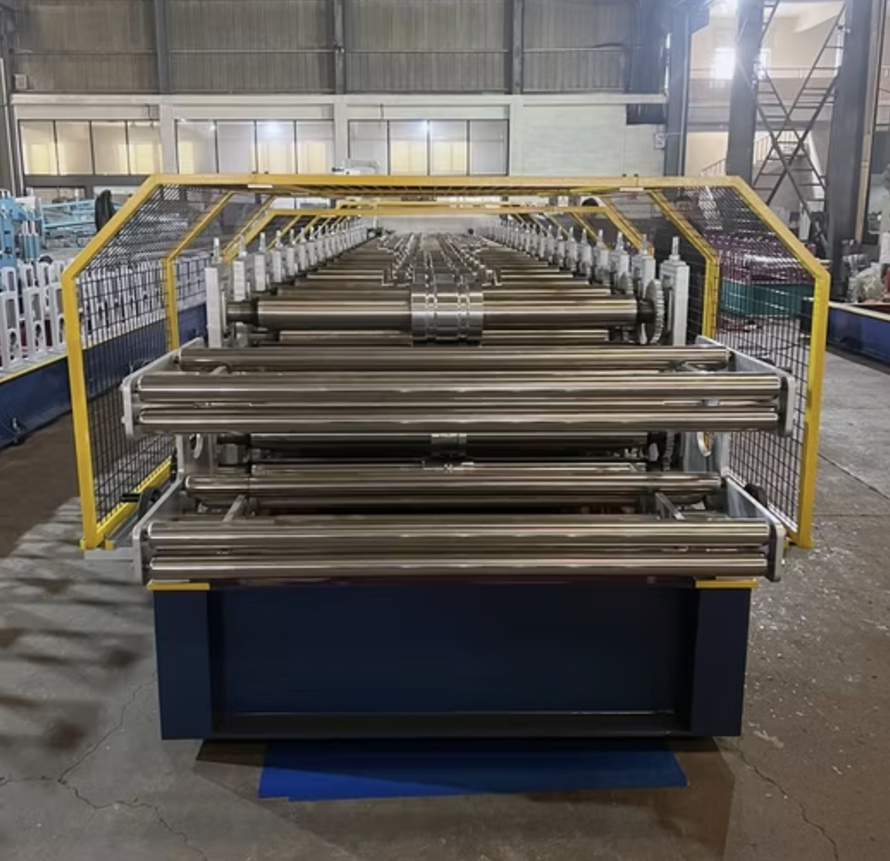To express an interest in this machine please submit the form below.

Not Sure What Machine You Need?
Select Your Profile, We'll Match It
Choose your desired profile drawing, and let Machine Matcher connect you with the best roll forming machine tailored to your needs.
Browse Profiles




Commercial roll forming machines are essential in manufacturing components for commercial buildings, industrial setups, and large-scale infrastructure projects. These machines are designed to produce high-precision metal profiles like roofing panels, wall panels, structural sections, and various custom profiles efficiently and cost-effectively.
A Commercial Roll Forming Machine is a high-capacity machine used to form continuous metal sheets into desired shapes and profiles through a series of rollers. The rollers gradually shape the metal without compromising its structural integrity. These machines are capable of processing various metals such as steel, aluminum, and copper and are often customized to meet the specific needs of industries.
Commercial roll forming machines can cater to diverse industries, including construction, automotive, and energy sectors. Their applications span producing items like metal siding, floor decking, commercial roofing panels, and more.
Here’s a detailed breakdown of the specifications of a standard commercial roll forming machine:
Canada’s commercial construction sector heavily relies on roll forming machines for their ability to manufacture components such as:
Q1: What materials can a commercial roll forming machine process?
A1: These machines can process materials like galvanized steel, aluminum, stainless steel, copper, and pre-painted steel, depending on the profile and industry requirements.
Q2: How does a roll forming machine ensure profile accuracy?
A2: The machine uses precisely calibrated rollers and a PLC-controlled system to maintain accuracy within ±0.5 mm, ensuring consistent quality.
Q3: Can the machine be customized for Canadian voltage standards?
A3: Yes, commercial roll forming machines can be tailored to meet Canadian voltage standards (typically 380V/50Hz or 600V/60Hz).
Q4: What industries in Canada commonly use these machines?
A4: Industries such as construction, infrastructure development, automotive manufacturing, and energy sectors frequently use roll forming machines.
Q5: How long does it take to set up and install the machine?
A5: Installation and setup usually take 1-2 weeks, including site preparation, assembly, and operator training.
Q6: Is it possible to produce multiple profiles with one machine?
A6: Yes, many machines come with interchangeable rollers, allowing for multiple profiles to be produced with a single setup.
Q7: What is the expected lifespan of a commercial roll forming machine?
A7: With proper maintenance, the lifespan of a commercial roll forming machine can exceed 20 years.
Q8: Are there any government incentives for buying roll forming machines in Canada?
A8: Various provincial and federal programs support manufacturing equipment investments; consult local trade authorities for details.
This comprehensive guide provides insights into the capabilities, applications, and considerations of commercial roll forming machines, making it a valuable resource for Canadian businesses exploring this technology.
Copyright 2026 © Machine Matcher.